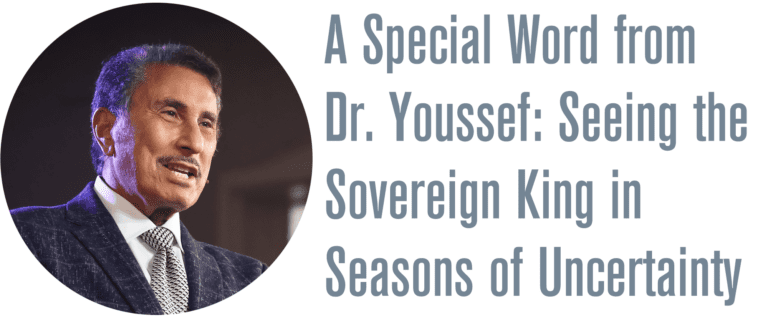Dr. Youssef’s book Is the End Near? answers your most pressing end-times questions. Learn more at IsTheEndNearBook.com.
Jesus pleads with us to repent and accept God’s plan of salvation.
If you do an internet search asking questions such as "What does the Bible teach about hell?" some of the first few results will be from false teachers. Here are the titles of webpages that popped up at the top of my search:
- "Hell Is Not a Biblical Concept."
- "Jesus Christ Did Not Teach or Believe in Hell."
- "There Is No Hell in the Bible."
- "Heaven and Hell Are ‘Not What Jesus Preached,’ Religion Scholar Says."
It is shocking that so many of these false teachers will look you in the eye and deny what is plainly printed on the pages of God’s Word.
Jesus spoke more about heaven and hell than any other preacher or prophet in the Bible. Jesus spoke more about hell then He spoke about heaven. Yet He always talked about judgment in the most caring and compassionate language. Why? Because He was pleading with people to repent, to receive the free gift of salvation, and to escape the wrath to come. Jesus wept over Jerusalem because the people’s rejection of Him would result in judgment. And He weeps over every human soul who rejects Him and incurs the coming judgment.
As we wait for Him to come back for us, Jesus warns us not to be deceived by false messiahs and false preachers and their deceptive teachings. He pleads with us to repent and accept God’s plan of salvation. He pleads with us to take refuge in Him from the wrath to come.
Jesus’ Message to Us Through the Parable of the Ten Virgins
In the Parable of the Ten Virgins (see Matthew 25:1-13), Jesus provides a challenging message to all of us as we anticipate His coming. In the parable, the bridegroom, of course, is Jesus. Everyone expected the wedding to begin at a certain time, but the bridegroom was late. He arrived much later than anyone expected—at midnight.
The ten virgins represent all who claim to be Christians, all who claim to be awaiting the return of Jesus. There were five virgins who were wise and five who were foolish. The five wise virgins brought extra oil for their lamps, just in case the bridegroom was late. When he arrived at midnight, they were ready. The five foolish virgins were caught unprepared—and when they had to go out to buy oil, the doors were shut, and they were locked out of the wedding.
Please don’t miss these words of Scripture: "’Lord, Lord,’ they said, ‘open the door for us!’ But he replied, ‘Truly I tell you, I don’t know you’" (Matthew 25:11-12)
What did the wise virgins and foolish virgins have in common? All ten virgins were invited and had responded to the invitation. All of them believed that the bridegroom was coming. All of them fell asleep. But at midnight, when the bridegroom arrived, those similarities disappeared. Only the five wise virgins were prepared for His coming.
The Bible tells us that, at the end of history, there will be a great falling away. Many who claim to know Christ, who claim to be Christians, will be revealed as faithless. About those days Jesus warned, "Because of the increase of wickedness, the love of most will grow cold, but the one who stands firm to the end will be saved" (Matthew 24:12-13).
Many in the church today are like the foolish virgins in Jesus’s parable. They have fallen asleep and are unprepared for His coming.
It’s time to wake up and prepare for His return. It’s time to ask God to strengthen our faith and give us power to work for His Kingdom, knowing that the Bridegroom could arrive at any moment.
Dr. Youssef’s book Is the End Near? answers your most pressing end-times questions. Learn more at IsTheEndNearBook.com.
Share
Recent MY Journal

Seeing the Sovereign King in Seasons of Uncertainty
November 7, 2024

I Called Out to God: Rachel’s Story (USA)
November 6, 2024
Sign Up for Ministry Updates
You might also like
End Times
History Is God’s Story
October 6, 2023
End Times
End-Times Questions: How Can I Guard Against Deception?
September 3, 2022



